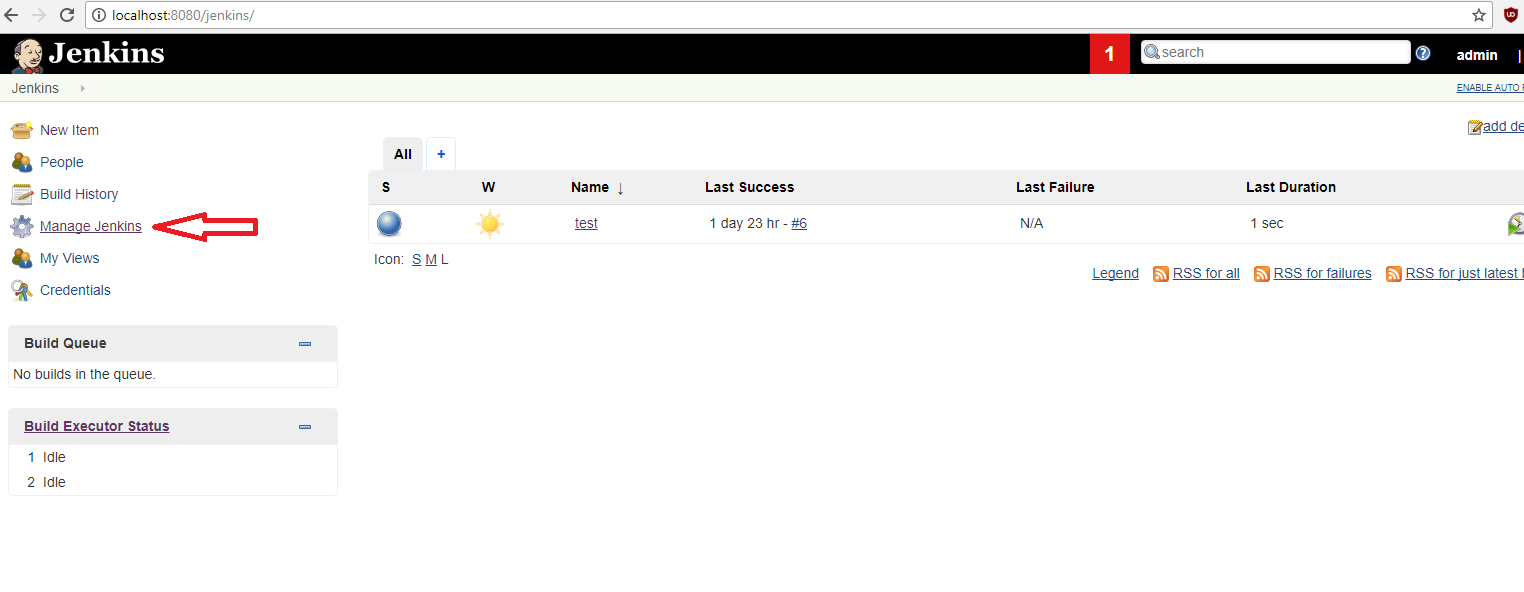This plugin removes comments from source files for a number of programming languages. Required Python 3.6 on Jenkins server. A new build step is added: 'Invoke Comments Remover' which accepts files to process as input and creates uncommented version of them.
User can specify Python path in global settings for the plugin (otherwise the one on the system PATH is used).
Contributors
Daniel Dyląg
Global settings
Go to Manage Jenkins -> Configure System to access them
There is help section to provide examples:
Usage
The plugin can be used wherever build steps can be defined, e.g. Freestyle project
Adding build step:
This part also has "help" section:
Example of build output and result:
Using as a shell/batch command script
Alternatively, user can create plain script build step
(Execute shell or Execute Windows batch command) and
run comments_remover.py Python script manually.
Comments Remover script is unpacked to JENKINS_HOME directory (which is available in script as environmental variable)
If you use Jenkins Struct Plugin, this plugin has a shorthand
defined: commentsremover.
For contributors
Updating plugin with a new version of Comments Remover
Create ZIP archive of all files required to run Comments Remover - in
particular, comments_remover.py and requirements.txt. Put it
in src/main/resources. The plugin expects to
find comment_remover.py and requirement.txt on the top lever of the
archive.
Debug
mvnDebug hpi:run
You can attach Java Debugger to a local Java process of Jenkins.
Prepare plugin for distribution
mvn package
The *.hpi file will be created in target/ directory. To install manually on local Jenkins, copy it to $JENKINS_HOME/plugins directory.
Releasing new version to Jenkins Update Center
mvn release:prepare release:perform
Follow the instructions to assign new version number.
You must have an account on jenkins-ci.org with commit rights, and its credentials configured in maven settings:
<server>
<id>maven.jenkins-ci.org</id>
<username>...</username>
<password>...</password>
</server>
More info here:
https://wiki.jenkins.io/display/JENKINS/Hosting+Plugins
For contributors
Updating plugin with a new version of Comments Remover
Create ZIP archive of all files required to run Comments Remover - in
particular, comments_remover.py and requirements.txt. Put it
in src/main/resources. The plugin expects to
find comment_remover.py and requirement.txt on the top lever of the
archive.
Debug
mvnDebug hpi:run
You can attach Java Debugger to a local Java process of Jenkins.
Prepare plugin for distribution
mvn package
The *.hpi file will be created in target/ directory. To install manually on local Jenkins, copy it to $JENKINS_HOME/plugins directory.
Releasing new version to Jenkins Update Center
mvn release:prepare release:perform
Follow the instructions to assign new version number.
You must have an account on jenkins-ci.org with commit rights, and its credentials configured in maven settings:
<server>
<id>maven.jenkins-ci.org</id>
<username>...</username>
<password>...</password>
</server>
More info here:
https://wiki.jenkins.io/display/JENKINS/Hosting+Plugins
For contributors
Updating plugin with a new version of Comments Remover
Create ZIP archive of all files required to run Comments Remover - in
particular, comments_remover.py and requirements.txt. Put it
in src/main/resources. The plugin expects to
find comment_remover.py and requirement.txt on the top lever of the
archive.
Debug
mvnDebug hpi:run
You can attach Java Debugger to a local Java process of Jenkins.
Prepare plugin for distribution
mvn package
The *.hpi file will be created in target/ directory. To install manually on local Jenkins, copy it to $JENKINS_HOME/plugins directory.
Releasing new version to Jenkins Update Center
mvn release:prepare release:perform
Follow the instructions to assign new version number.
You must have an account on jenkins-ci.org with commit rights, and its credentials configured in maven settings:
<server>
<id>maven.jenkins-ci.org</id>
<username>...</username>
<password>...</password>
</server>
More info here:












